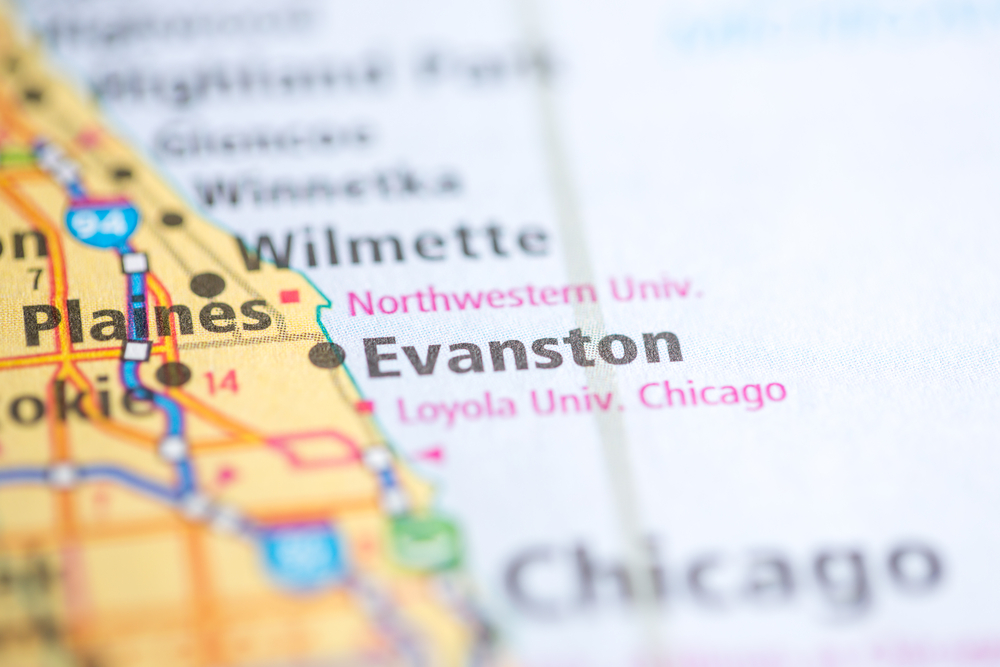 Home to 74,000 residents, progressive ideals, and urban culture, Evanston is a liberal township located in Cook County, Illinois. While Evanston prides itself on its ethnically diverse population, the city’s Black community has endured unjust treatment for years. More specifically, there are glaring racial disparities in marijuana arrests. Though Black people make up only 16 percent of the city’s population, Black residents are seven times more likely to be arrested for cannabis possession. In the hopes of righting these wrongs, the city is funding reparations for Blacks via Evanston Illinois cannabis taxes.
Home to 74,000 residents, progressive ideals, and urban culture, Evanston is a liberal township located in Cook County, Illinois. While Evanston prides itself on its ethnically diverse population, the city’s Black community has endured unjust treatment for years. More specifically, there are glaring racial disparities in marijuana arrests. Though Black people make up only 16 percent of the city’s population, Black residents are seven times more likely to be arrested for cannabis possession. In the hopes of righting these wrongs, the city is funding reparations for Blacks via Evanston Illinois cannabis taxes.
Alderman Robin Rue Simmons, an Evanston native, spearheaded these efforts. Following the passage of the Cannabis Regulation and Tax Act in 2020, Evanston made adult-use cannabis legal. Simmons expressed her approval of this law early on, stating that the Cannabis Regulation and Tax Act would present an opportunity to resolve damage caused by “the war on drugs and marijuana convictions.” As an ardent champion of this legislation, Simmons played a pivotal role in putting this bill into effect.
In late 2019, other changes were coming to the surface, inspiring Evanston to pass cannabis-based reparations laws. Initially, the minimal taxes on adult-use cannabis paid for these reparations. Currently, $10 million is going towards a housing project that will help Black residents afford homes in Evanston. Eligible residents will receive payments in $25,000 installments, preparing prospective homeowners for this financial responsibility. This 25k housing fund seeks to undo the adverse effects of decades-long racism.
According to Simmons, she hopes that this 25k housing fund will foster a sense of community among Evanston’s Black residents. These initiatives are gaining such traction that activists are coming forward to express their admiration for Evanston’s efforts. Danny Glover, a Black activist and esteemed actor, maintains that Evanston is sparking a much-needed and “intense conversation” regarding reparations for Blacks. Glover describes this historical moment as one that restored our faith in humanity. Fortunately, Evanston is serving as a model for other reparations programs. 
Though Evanston isn’t the first city to direct cannabis tax revenue to oppressed communities, it’s the first to finance reparations solely for a community’s Black residents. As these developments continue to unfold, other overdue changes are well on the horizon. In fact, Evanston’s programs have given life to new projects introduced in a national congressional bill. The Commission to Study and Develop Reparation Proposals for African Americans Act will examine slavery and discrimination and, in turn, identify how living African Americans have been impacted by these transgressions.
Much like Simmons, these movements are providing hope to individuals who have witnessed racial inequality firsthand. Growing up, Simmons was no stranger to prejudice. Condemned for her lack of resources, Simmons was constantly compared to her white friends. Simmons knew that her innate qualities put her at a disadvantage, and these biases precipitated deep-seated division. Inspired by her experiences, Simmons vowed to advocate for change, which is why cities like Evanston are providing blueprints for revolution.











